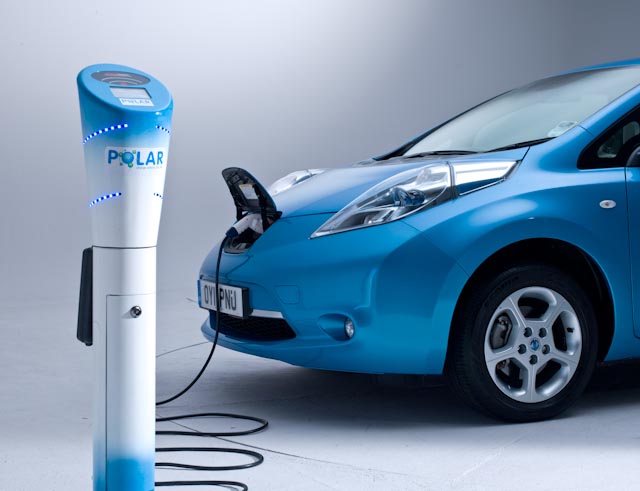The spread of electric cars and public charging stations for them across the United States will be uneven for many years to come.
Many analysts and advocates believe that California residents will buy as many plug-in cars as are sold in the next five states combined.
With the exception of Texas and Detroit, the early rollout areas--those whose residents and policies are likely to be most supportive of plugging in to drive--are largely coastal.
As well as California, both Oregon and Washington are likely to have high adoption rates. In the east, Washington, D.C., New York, and the states of New England are all moving forward smartly on adopting electric cars.
Kansas, North Dakota, and Mississippi? Perhaps not so much.
But it's always easier to launch a new technology in a small, circumscribed area. Take Ireland, for example.
John Gartner of Pike Research writes that the Republic of Ireland seems quite likely to outpace the U.S. in both adoption rates for electric cars and installation of public charging stations.

Polar Charging Post and Nissan Leaf
And that's despite having only two electric cars on sale: the Nissan Leaf and the 2012 Mitsubishi 'i' (known there as the i-MiEV).
The 1,500 charging stations Ireland plans to install this year will give it a much higher rate of chargers to citizens than the U.S., which has roughly 50 times as many people--and will install twice that number of stations.
Moreover, the largest national electric utility, ESB, is working toward a goal of using 40 percent renewable energy.
To reduce overall carbon emissions, it is installing charging infrastructure to support the Irish government's goal having 10 percent of new vehicles running on electricity by 2020.

Public Charging Station for electric cars, courtesy Mitsubishi Motors
It is also creating a single-card payment system that will allow electric-car drivers to recharge at multiple locations and have the charges put on their home electric bill--the equivalent of mobile-phone roaming, but for electricity rather than talk minutes.
Spain and Portugal are developing similar systems.
In the U.S., by contrast, there are several thousand different electric utilities--private, public, and cooperative--each of which has a different approach to the arrival of electric-car charging (if in fact they have one at all).
So if you're curious about how electric cars might work in a (more) ideal world, perhaps you want to consider a vacation in Ireland in, say, 2013 or 2014?
+++++++++++













